Found 9 results
Open Access
Article
26 May 2025Electric Vehicles, Artificial Intelligence, and Climate Policy
This article explores the environmental implications of electrification and artificial intelligence (AI) infrastructure, emphasizing the importance of aligning technological development with climate goals. There is a lack of academic literature that explains and analyses such issues. Section 1 assesses the climate efficacy of promoting electric vehicles (EVs) and electric heating in regions where electricity is primarily coal-based. While electrification offers substantial climate benefits when powered by clean energy, lifecycle analyses reveal that EVs in coal-reliant grids may emit more greenhouse gases than internal combustion engine vehicles. Similarly, the climate performance of electric heat pumps depends on the carbon intensity of electricity sources. The section advocates for integrated policies that simultaneously promote electrification and grid decarbonization, enhancing emissions reductions and public health while mitigating the negative impacts of increased demand on polluting power plants. Section 2 uses Saudi Arabia as a case study and examines the environmental impact of AI data centers in the context of Saudi Arabia’s energy and climate policies. It highlights AI infrastructure’s energy and water intensity and its potential to strain environmental resources. To align AI development with national sustainability goals, the article recommends policies such as siting data centers near renewable energy sources, enforcing environmental efficiency standards, fostering R&D partnerships, mandating sustainability reporting, and expanding power purchase agreements and demand response participation. These measures aim to ensure responsible AI growth within climate-aligned frameworks. The implications of this study are that electrification and AI infrastructure can significantly reduce emissions and improve efficiency if powered by clean energy, but they also risk increasing environmental strain unless technological growth is carefully aligned with climate and sustainability goals.
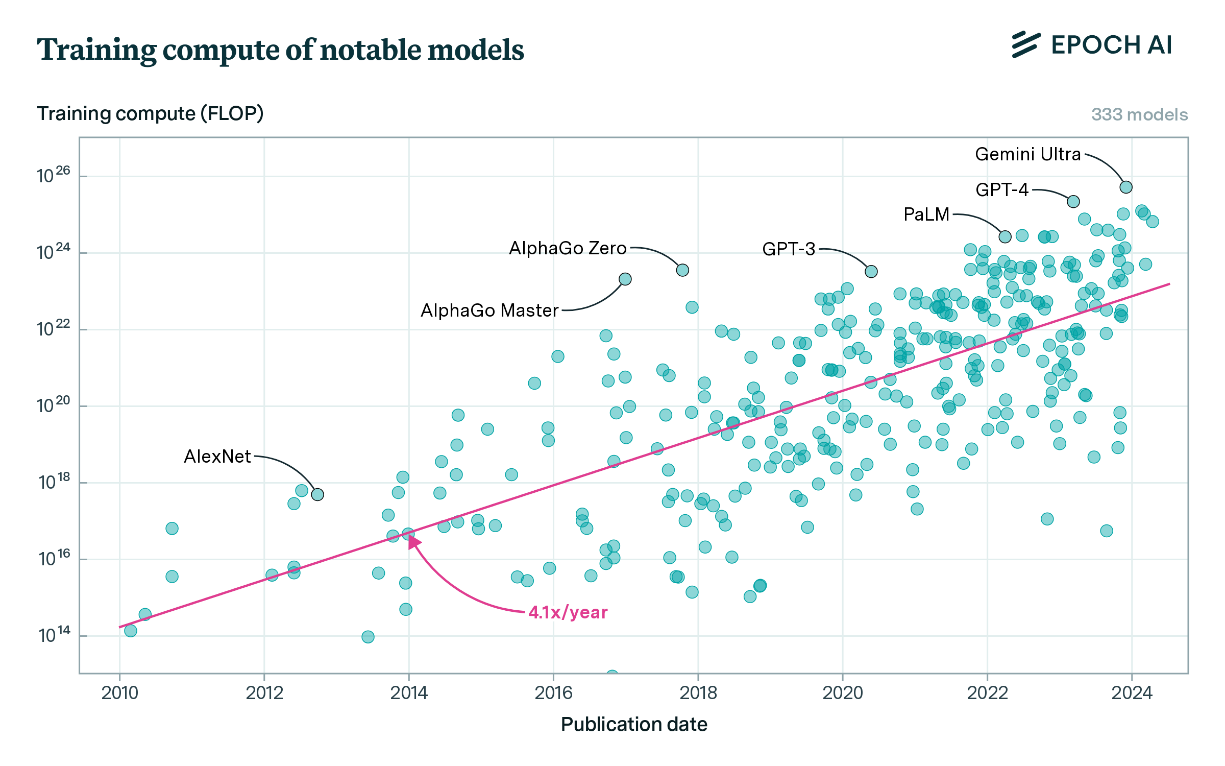
Open Access
Editorial
24 March 2025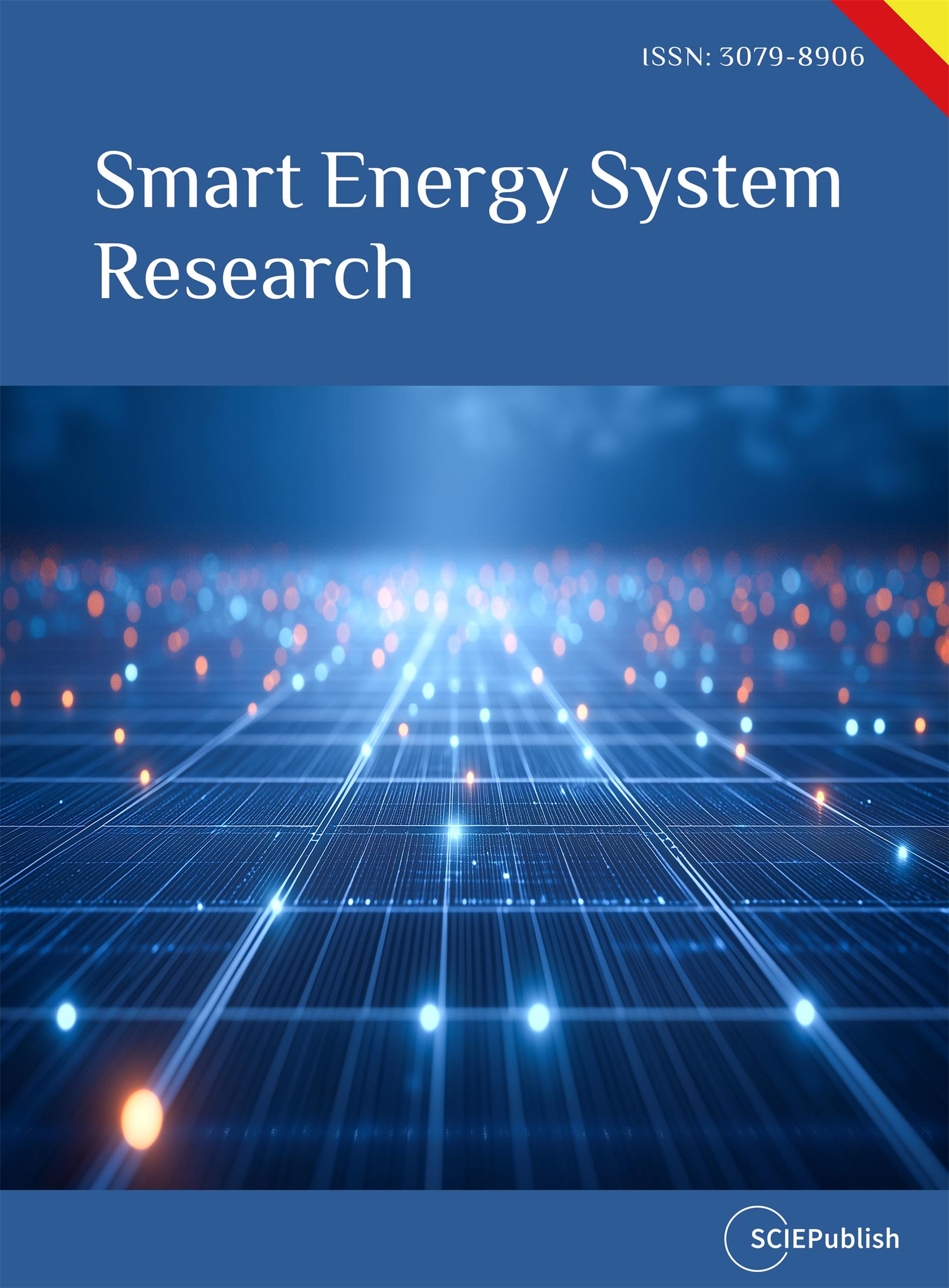
Open Access
Review
18 February 2025Digital Twin and Artificial Intelligence in Machining: A Bibliometric Analysis
The past decade has witnessed an exodus toward smart and lean manufacturing methods. The trend includes integrating intelligent methods into sustainable manufacturing systems purposely to improve the machining efficiency, reduce waste and also optimize productivity. Manufacturing systems have seen transformations from conventional methods, leaning towards smart manufacturing in line with the industrial revolution 4.0. Since the manufacturing process encompasses a wide range of human development capacity, it is essential to analyze its developmental trends, thereby preparing us for future uncertainties. In this work, we have used a Bibliometric analysis technique to study the developmental trends relating to machining, digital twins and artificial intelligence techniques. The review comprises the current activities in relation to the development to this area. The article comprises a Bibliometric analysis of 464 articles that were acquired from the Web of Science database, with a search period until November 2024. The method of obtaining the data includes retrieval from the database, qualitative analysis and interpreting the data via visual representation. The raw data obtained were redrawn using the origin software, and their visual interpretations were represented using the VOSviewer software (VOSviewer_1.6.19). The results obtained indicate that the number of publications related to the searched keywords has remarkably increased since the year 2018, achieving a record maximum of over 80 articles in 2024. This is indicative of its increasing popularity. The analysis of the articles was conducted based on the author countries, journal types, journal names, institutions, article types, major and micro research areas. The findings from the analysis are meant to provide a bibliometric explanation of the developmental trends in machining systems towards achieving the IR 4.0 goals. Additionally, the results would be helpful to researchers and industrialists that intend to achieve optimum and sustainable machining using digital twin technologies.
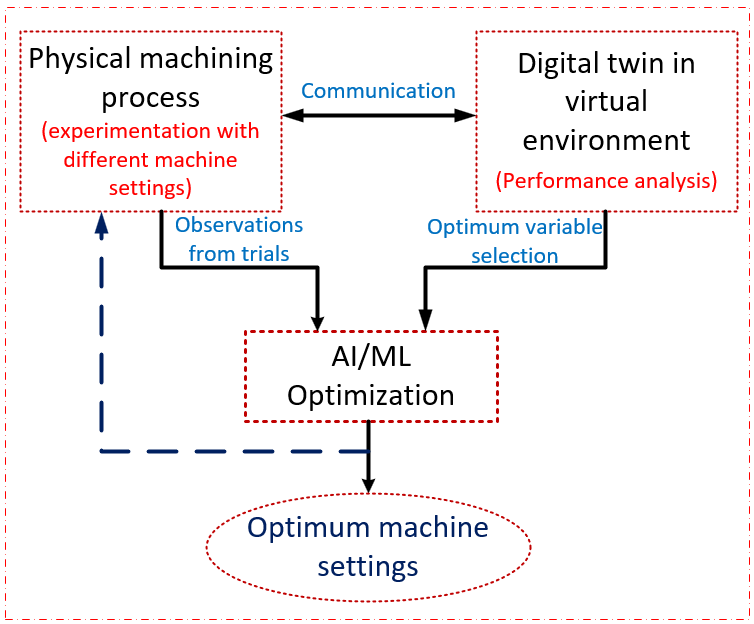
Open Access
Perspective
18 February 2025The Emerging “AI Artists”: Breaking the Metacrisis and the Fear of Losing Human Creativity
The emergence of artificial intelligence (AI) in the creative arts has ignited a global discourse on the intersection of technology, human creativity, and artistic expression. This paper examines the rise of “AI artists” within the broader context of neuropsychology, the metacrisis, and theories of art and creativity. Drawing on Ian McGilchrist’s hemispheric theory, it explores how AI, often associated with left-hemisphere analytical dominance, can paradoxically contribute to right-hemisphere creative processes. The study evaluates the role of AI in expanding artistic boundaries, democratizing creative expression, and redefining authorship, while addressing concerns about originality, cultural significance, and the potential devaluation of human-made art. Through an anthropological and philosophical lens, the paper argues that AI does not replace human creativity but rather augments it, offering novel tools for artistic exploration. By integrating insights from cognitive science, aesthetics, and digital humanities, this article positions AI as a collaborator in artistic evolution rather than a competitor. Ultimately, there is an assertion that the human capacity for meaning-making and emotional resonance remains irreplaceable, ensuring that human creativity persists and thrives alongside AI-generated art.

Open Access
Review
14 January 2025Artificial Intelligence and Machine Learning for Sustainable Manufacturing: Current Trends and Future Prospects
Artificial Intelligence (AI) and Machine Learning (ML) are transforming manufacturing processes, offering unprecedented opportunities to enhance sustainability and environmental stewardship. This comprehensive review analyzes the transformative impact of AI technologies on sustainable manufacturing, focusing on critical applications, including energy optimization, predictive maintenance, waste reduction, and circular economy implementation. Through systematic analysis of current research and industry practices, the study examines both the opportunities and challenges in deploying AI-driven solutions for sustainable manufacturing. The findings provide strategic insights for researchers, industry practitioners, and policymakers working towards intelligent and sustainable manufacturing systems while elucidating emerging trends and future directions in this rapidly evolving field.
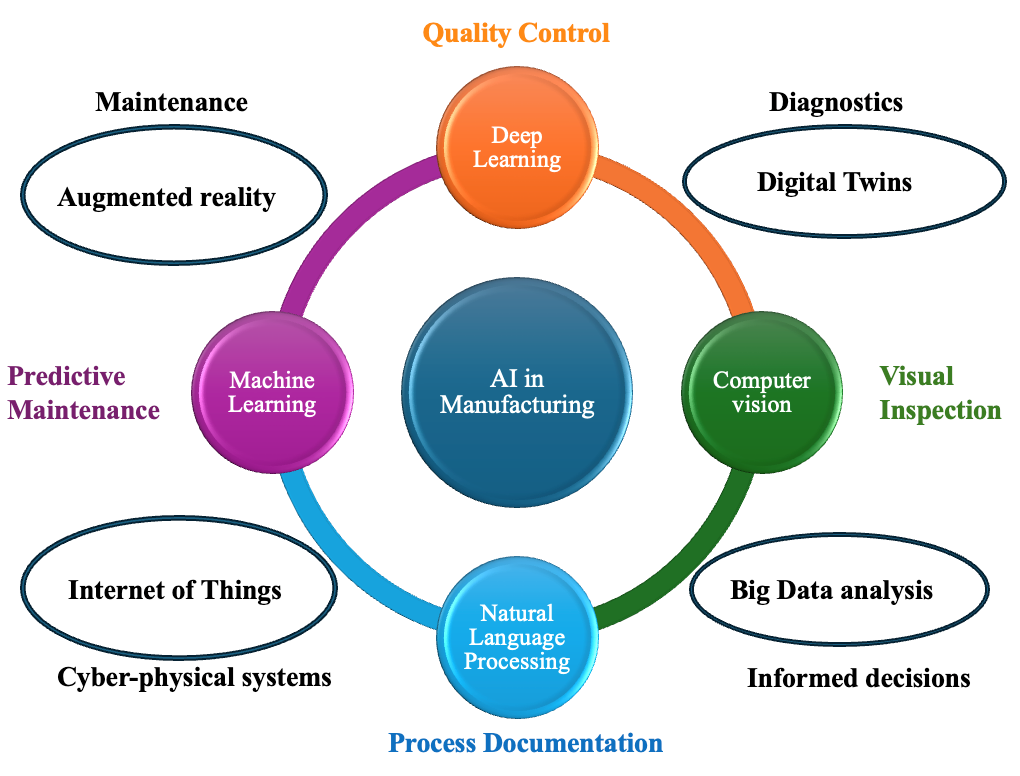
Open Access
Article
10 December 2024Sailing the X.0 Wave Theory: Navigating the Future of Civilization
This paper delves into the X.0 Wave/Tomorrow Age Theory, a comprehensive framework conceived, invented, introduced, and developed by Prof. Dr. Hamid Mattiello between 2010 and 2017, to analyze the evolution of human civilization through distinct epochs of knowledge, technology, and business (KTB). The theory segments history into transformative waves, from the first development (X.0 ≤ 1.0) and Agricultural Age (X.0 = 1.0) and the X.0 Wave/Tomorrow Age Theory (2.1 ≤ X.0 ≤ 2.2) spanning the 17th Century to 1870, to the current Age of Artificial Intelligence (X.0 = 4.0). It also projects into the anticipated Human Age (X.0 = 5.0) and Transhuman Age (X.0 = 6.0) and beyond (6.0 ≤ X.0). Each wave represents a revolutionary phase characterized by significant advancements that shape societies, industries, and technologies. The X.0 Wave Theory integrates these historical phases with the Seven Pillars of Sustainability (7PS) to evaluate their societal impacts. The paper explores how these waves influence future developments by examining historical roots, emerging technological paradigms, and socio-economic dynamics. It examines how advancements in AI, biotechnology, and virtual reality are reshaping industries and global business practices, while also addressing the ethical and sustainability considerations essential for navigating these changes. By forecasting future trends, confronting current challenges, and preparing for potential crises, the X.0 Wave Theory offers a robust framework for understanding and adapting to the rapid pace of technological evolution. This paper provides deep insights into how these transformative waves shape our past, present, and future, offering valuable perspectives for navigating the complexities of an increasingly digital and interconnected world.
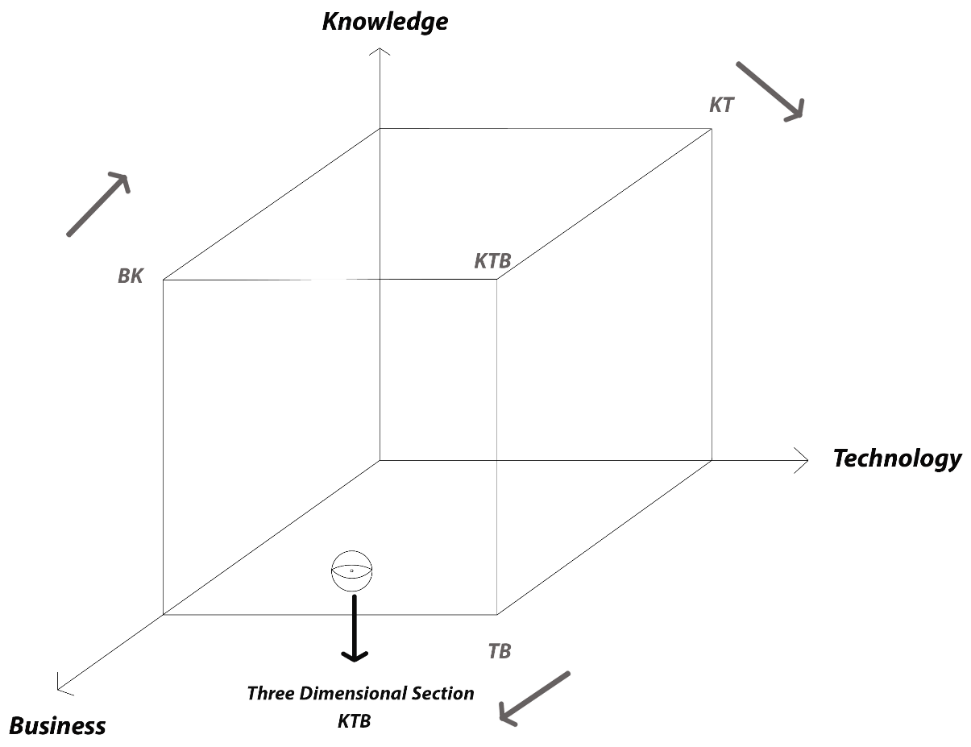
Open Access
Review
02 August 2024A Promising and Forward-Looking Advancement Using Drones: Perspectives from Indian Sericulture
Drone integration in sericulture marks a promising advancement within the sector, leveraging recent technological strides in unmanned aerial vehicles (UAVs) across various industries like agriculture and healthcare. While the adoption of drones in sericulture remains nascent, their potential benefits, particularly in chemical spraying tailored to sericulture’s unique environmental conditions, are increasingly recognized. This paper explores the efficacy of drone-based pesticide spraying and smart fertilization methods optimized for sericulture settings. The rapid deployment capabilities of drones facilitate enhanced network connectivity, potentially catalyzing rural development and economic prosperity within the sericulture community. However, ethical and operational concerns persist regarding drone use across industries, necessitating robust regulatory frameworks and ethical guidelines. Furthermore, advancements in artificial intelligence augment drone capabilities, enabling automated inspections and improved performance across diverse applications. This paper underscores the need for further research and the development of standardized operating protocols to harness the transformative potential of drone technology in sericulture. Key focus areas include optimizing pesticide delivery, ensuring environmental sustainability, and addressing ethical considerations surrounding drone utilization. By leveraging UAVs for precision spraying and smart fertilization, sericulture stands poised to enhance productivity, bolster economic development, and navigate emerging challenges in agricultural production.

Open Access
Review
30 May 2024A Review on Design of Sustainable Advanced Materials by Using Artificial Intelligence
This paper gives a comprehensive review of scientific interests and current methodologies of artificial intelligence applied to advanced material design and discovery by taking into account multiple sustainable design criteria such as functionalities, costs, environmental impacts, and recyclability. The main research activities include predicting material properties, compositions, and structures with data mining, new material discovery, hybrid modeling approaches combining AI techniques and classical computational formulations based on physical and chemical laws, and multicriteria optimization of materials. Based on this review, a short analysis is provided on the perspectives of this research area in the future, aiming at creating an everything connected material life cycle with real-time traceability systems
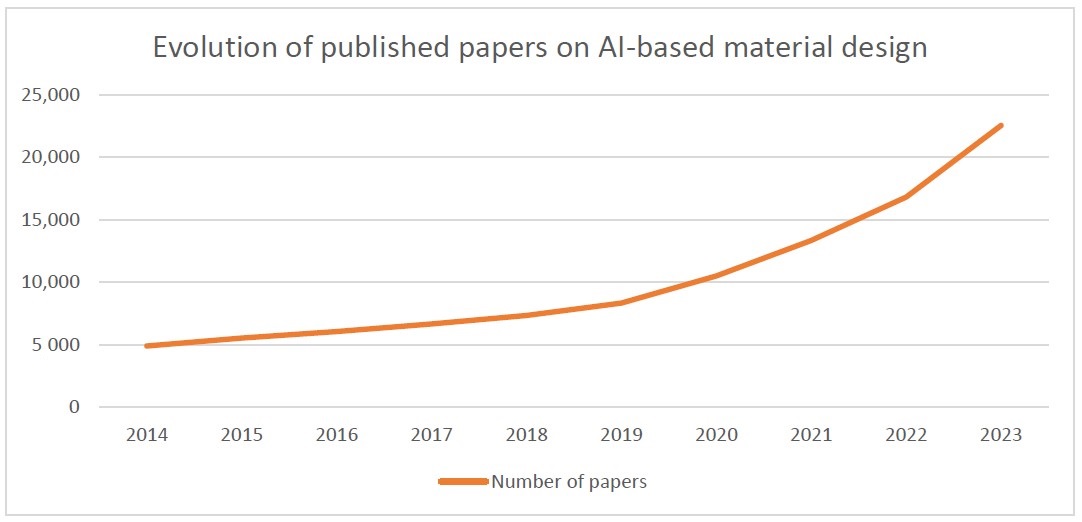
Open Access
Perspective
05 January 2024The Future of Artificial Intelligence Will Be “Next to Normal”—A Perspective on Future Directions and the Psychology of AI Safety Concerns
This paper introduces the AI “next to normal”-thesis, suggesting that as Artificial Intelligence becomes more ingrained in our daily lives, it will transition from a sensationalized entity to a regular tool. However, this normalization has psychosocial implications, particularly when it comes to AI safety concerns. The “next to normal”-thesis proposes that AI will soon be perceived as a standard component of our technological interactions, with its sensationalized nature diminishing over time. As AI’s integration becomes more seamless, many users may not even recognize their interactions with AI systems. The paper delves into the psychology of AI safety concerns, discussing the “Mere Exposure Effect” and the “Black Box Effect”. While the former suggests that increased exposure to AI leads to a more positive perception, the latter highlights the unease stemming from not fully understanding its capabilities. These effects can be seen as two opposing forces shaping the public’s perception of the technology. The central claim of the thesis is that as AI progresses to become normal, human psychology will evolve alongside with it and safety concerns will diminish, which may have practical consequences. The paper concludes by discussing the implications of the “next to normal”-thesis and offers recommendations for the industry and policymakers, emphasizing the need for increased transparency, continuous education, robust regulation, and empirical research. The future of AI is envisioned as one that is seamlessly integrated into society, yet it is imperative to address the associated safety concerns proactively and not take the normalization effects take ahold of it.
